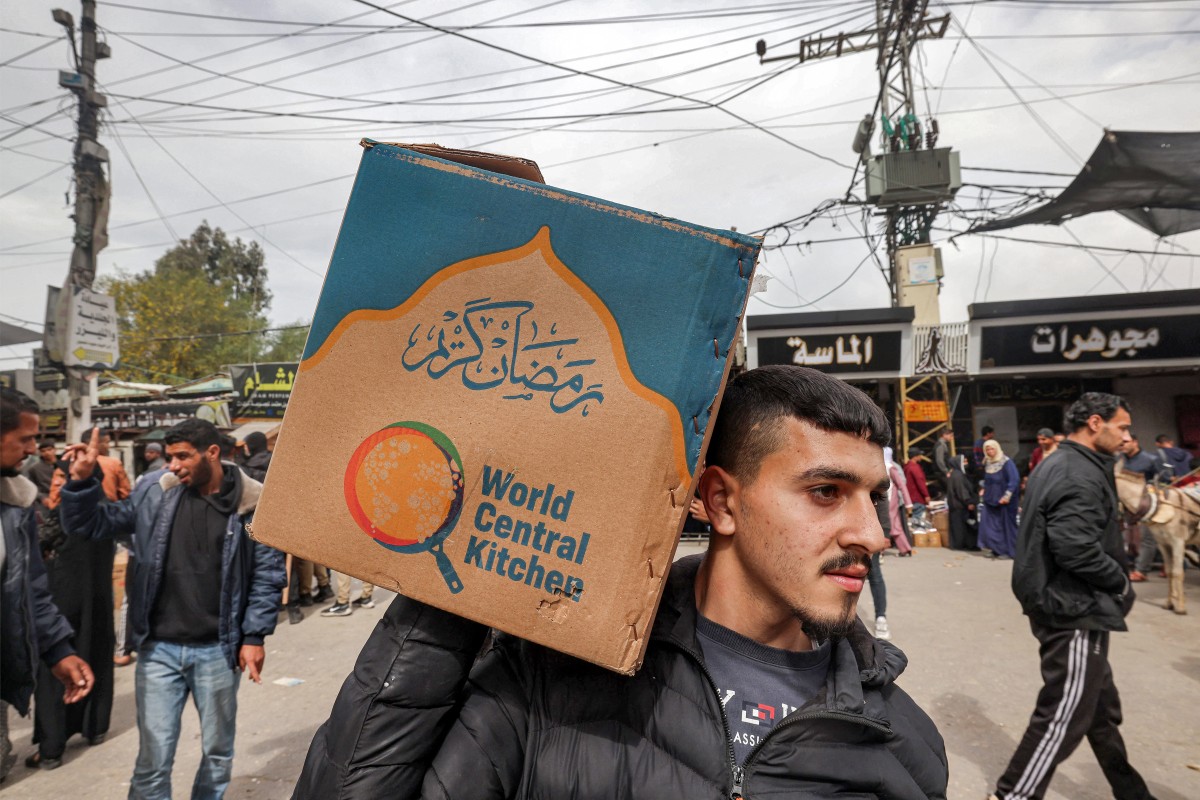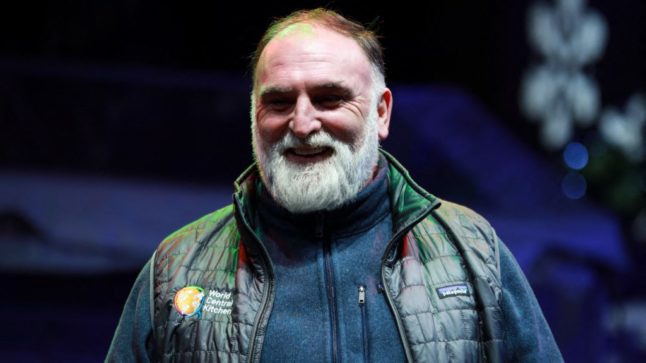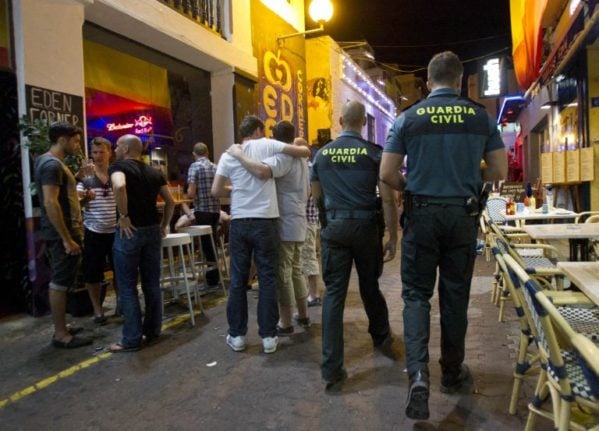The US-registered NGO has been feeding Gazans displaced since the start of the war between Israel and Hamas six months ago.
Last month, it organised the first maritime aid shipment to reach Gaza in nearly two decades, working with the Spanish NGO Open Arms to send 200 tonnes of food to the territory amid UN warnings of an impending famine.
The two organisations built a jetty southwest of Gaza City to deliver the aid, which was followed by a second shipment on Monday.
Today @WCKitchen lost several of our sisters and brothers in an IDF air strike in Gaza. I am heartbroken and grieving for their families and friends and our whole WCK family. These are people…angels…I served alongside in Ukraine, Gaza, Turkey, Morocco, Bahamas, Indonesia. They… https://t.co/rM3xbsiQ1Q
— Chef José Andrés 🕊️🥘🍳 (@chefjoseandres) April 1, 2024
The dead aid workers had just unloaded the second consignment at the warehouse in central Gaza where WCK has set up a giant kitchen when they were killed in an Israeli strike.
In an interview with US talk show host Jimmy Kimmel in November 2023, the gregarious 54-year-old chef hailed the bravery of the organisation’s volunteers.
“When others are moving away from disaster we have amazing individuals who move into the disaster (zone) to help people,” Andrés said.
He said that in most cases, the NGO obtains food directly at markets or shops in the affected areas and cooks using local infrastructure.
The volunteers “make magic happen, literally”, he said.
Born in 1969 in the northwestern Spanish town of Mieres, Andrés trained under Catalan chef Ferran Adriá, the famed creator of so-called molecular cuisine.
He moved to the United States in the 1990s, opening a string of restaurant that blend Spanish cuisines with flavours from Latin America and Asia.
One of his Washington restaurants, the 12-seater Minibar, has two Michelin stars.
In 2022, he turned his American fame into a CNN travel show, “José Andrés and Family in Spain”, featuring him and his three daughters on a gastronomic tour of his homeland.
In February that year, WCK was on the ground at Poland’s border with Ukraine within hours of Russia’s invasion, feeding refugees fleeing bombardments.
“I am and will be an emigrant all my life. That’s why I try to work on their behalf,” Andrés told Spanish daily El País in a May 2022 interview.
From Haiti to Ukraine
Andrés threw himself into humanitarian work in 2010, when Haiti was rocked by a devastating earthquake that killed around 200,000 people and caused extensive damage.
In his November interview with Kimmel, he said that was when he decided he was “not going to stand watching on TV thinking about what we can do.

“I’m going to show up and start learning how cooks like me, if we come together with volunteers, we can start feeding anybody.”
He travelled to the Haitian capital Port-au-Prince and began cooking local staples such as black beans and rice for families in camps for the displaced.
Since then WCK has dished up millions of meals to people impacted by natural disasters as well as migrants arriving at the US border, hospital staff working nonstop through the Covid-19 pandemic, Venezuelans in the grips of a severe economic crisis and war-scarred Ukrainians.
In 2015, he had planned to open a restaurant in the Trump International Hotel in Washington but pulled out after Donald Trump disparaged Mexicans as “rapists” who were “bringing crime” to America.



 Please whitelist us to continue reading.
Please whitelist us to continue reading.
Member comments